
The Free & Definitive Guide to What Dogs Can Eat
Can Dogs Eat Apples, Bananas, Watermelon, Carrots, etc?
Wondering What Fruits & Vegetables Are Safe Or Not For Your Dog? Find Out Now!

Felipe Martinez - Co-Founder of the Dog Lovers Association, Jan 1st 2023
But, allow me to introduce myself first...
...Hi, my name is Felipe Martinez co-founder of the Dog Lovers Association. We're a Non-Profit that Help Dogs & Dog Shelters in Need.
To help you with your dog food questions, we asked a vet to put together the Ultimate Veterinarian's Checklist of the 15 Foods You Should Never EVER Give Your Dog So You Can Keep Your Dog Safe from Choking or Poisoning.
Did You Know That in The US 350,000+ Dogs Die Every Year from Food Choking or Poisoning?
Introducing: The Ultimate Vet's Checklist of the 15 Foods You Should Never Ever Let Your Dog Eat!
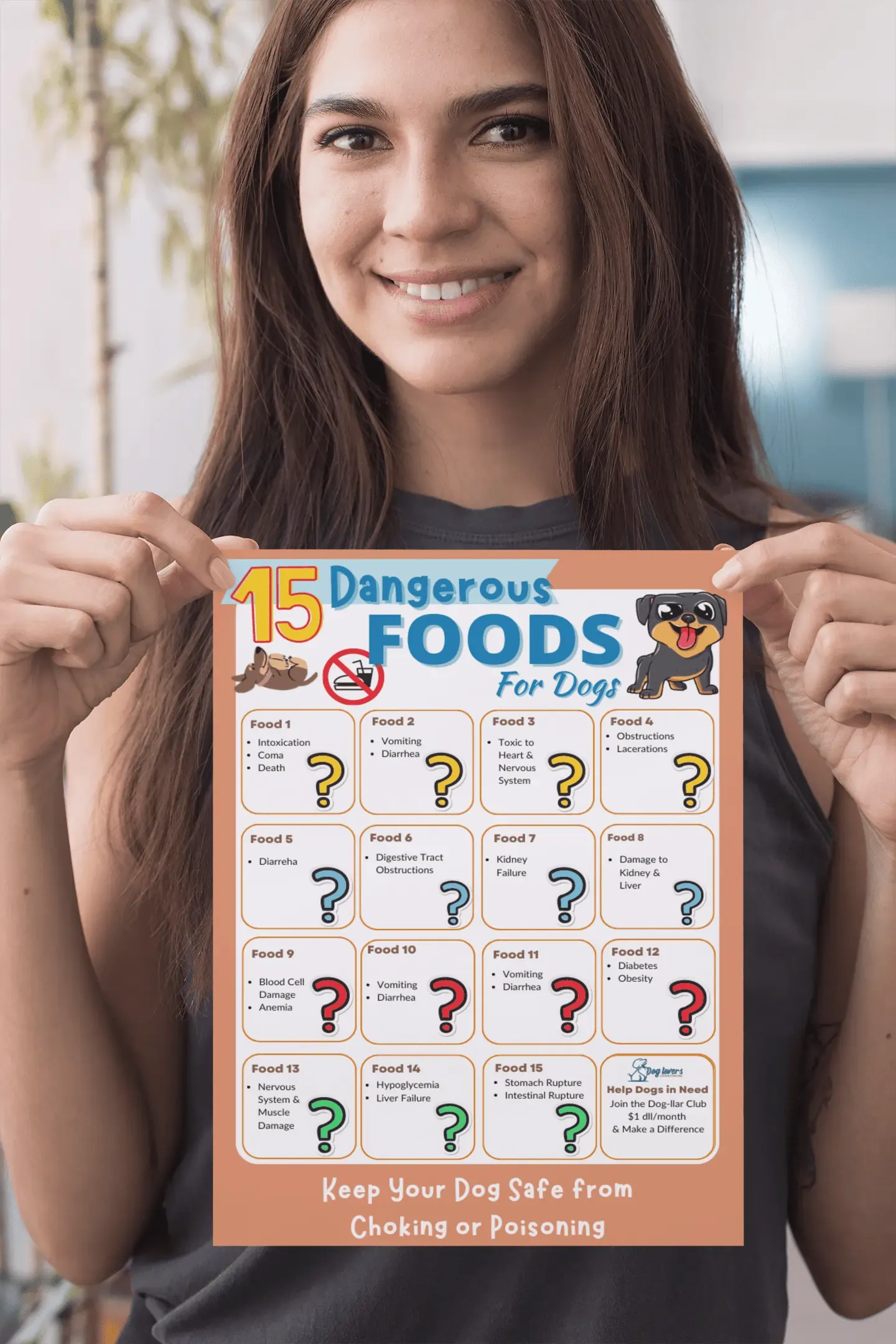

297 Reviews
Grab Your Checklist Now...
...And Keep Your Dog Safe from Choking or Poisoning
-
Save Money on Vet's Bills
-
Be Stress Free about the Food You Should Avoid Giving Your Dog
-
Keep Your Dog From Getting Allergic Reactions
-
Save Time & Effort of looking online everytime You're not Sure about the type of food your dog can eat.
This will also help you to...
$7
(Buy it Now & Get an instant 90% Discount) $70 USD Real Value
$7
(or Get it 100% FREE by Joining our Dog-llar Club)
Get it NOW & Help Us Improve the Lives of Shelter Dogs.
"A Lifesaver for Every Dog Parent! The peace of mind I've gained from knowing exactly what foods to avoid has been priceless. Recently, I accidentally dropped a piece of chocolate on the floor, and this checklist pop up in my mind immediately."


Jackie A.

Introduction
There are a lot of different opinions out there about what fruits and vegetables dogs can and cannot eat. However, the consensus is that most fruits and vegetables are safe for dogs to eat in moderation.
Generally speaking, any fruit or vegetable that is safe for humans to eat is also safe for dogs to eat.
However, there are a few exceptions. For example, grapes and raisins can be toxic to dogs and should be avoided.
Other fruits and vegetables that should be avoided include onions, garlic, chives, and scallions. These foods can cause digestive problems in dogs.
Here you'll find a list of fruits and vegetables that are safe for dogs to eat, as well as a few that should be avoided.
Can Dogs Eat Bananas?
Yes, dogs can eat bananas! In fact, they may even help to settle an upset stomach. Bananas are a good source of potassium and fiber, and they're low in sodium. Just be sure to take the banana peel off before giving it to your pup - the peel can be a choking hazard.
Can Dogs Eat Strawberries?
Yes, dogs can eat strawberries! Strawberries are a good source of Vitamin C and fiber. They're also low in sugar and calories, making them a healthy treat for your pup. Just be sure to remove the stem and leaves before giving them to your dog, as they can be choking hazards.
Can Dogs Eat Grapes?
No, grapes are not safe for dogs to eat. Grapes contain an unknown toxin that can cause kidney failure in dogs. Even a small amount of grapes can make your dog very sick, so it's best to avoid them altogether. If you think your dog has eaten grapes, please contact your veterinarian immediately.
Can Dogs Eat Watermelon?
Yes, dogs can eat watermelon! Watermelon is a good source of vitamins A and C, as well as fiber. It's also low in calories and fat, making it a healthy treat for your pup. Just be sure to remove the seeds and rind before giving it to your dog, as they can be choking hazards.
Can Dogs Eat Blueberries?
Yes, dogs can eat blueberries! Blueberries are a good source of vitamins C and K, as well as fiber. They're also low in calories, making them a healthy treat for your pup. Just be sure to remove the stem before giving them to your dog, as it can be a choking hazard.
Can Dogs Eat Pineapples?
Yes, dogs can eat pineapple! Pineapple is a good source of fiber and Vitamin C. It's also low in calories, making it a healthy treat for your pup. Just be sure to remove the core and eyes before giving it to your dog, as they can be choking hazards.
Can Dogs Eat Oranges?
Yes, dogs can eat oranges! Oranges are a good source of vitamins C and A, as well as fiber. They're also low in calories, making them a healthy treat for your pup. Just be sure to remove the seeds and rind before giving them to your dog, as they can be choking hazards.
Can Dogs Eat Tomatoes?
No, tomatoes are not safe for dogs to eat. Tomatoes contain a chemical called solanine, which is toxic to dogs. Even a small amount of tomato can make your dog very sick, so it's best to avoid them altogether. If you think your dog has eaten a tomato, please contact your veterinarian immediately.
Can Dogs Eat Carrots?
Yes, dogs can eat carrots! Carrots are a good source of fiber and vitamins A, B, and C. They're also low in calories, making them a healthy treat for your pup. Just be sure to remove the tops before giving them to your dog, as they can be choking hazards.
Can Dogs Eat Broccoli?
Yes, dogs can eat broccoli! Broccoli is a good source of fiber and vitamins A, C, and E. It's also low in calories, making it a healthy treat for your pup. Just be sure to remove the stem before giving it to your dog, as it can be a choking hazard.
Can Dogs Eat Shrimp?
Yes, dogs can eat shrimp! Shrimp is a good source of protein and omega-3 fatty acids. It's also low in calories, making it a healthy treat for your pup. Just be sure to remove the shell before giving it to your dog, as it can be a choking hazard.
Can Dogs Eat Chicken?
Yes, dogs can eat chicken! Chicken is a good source of protein and omega-6 fatty acids. It's also low in calories, making it a healthy treat for your pup. Just be sure to remove the skin and bones before giving it to your dog, as they can be choking hazards.
At the Dog Lovers Association, we understand that finding the right food for your dog can be challenging.
That's why we've asked a Veterinarian the Food You Should Never Give Your Dog and created a checklist.... Grab it now!
Simply click the button below to check out our recommendations and find the best vitamins for your furry friend.
Unlock Your Cheat Sheet Checklist Below 👇 ....
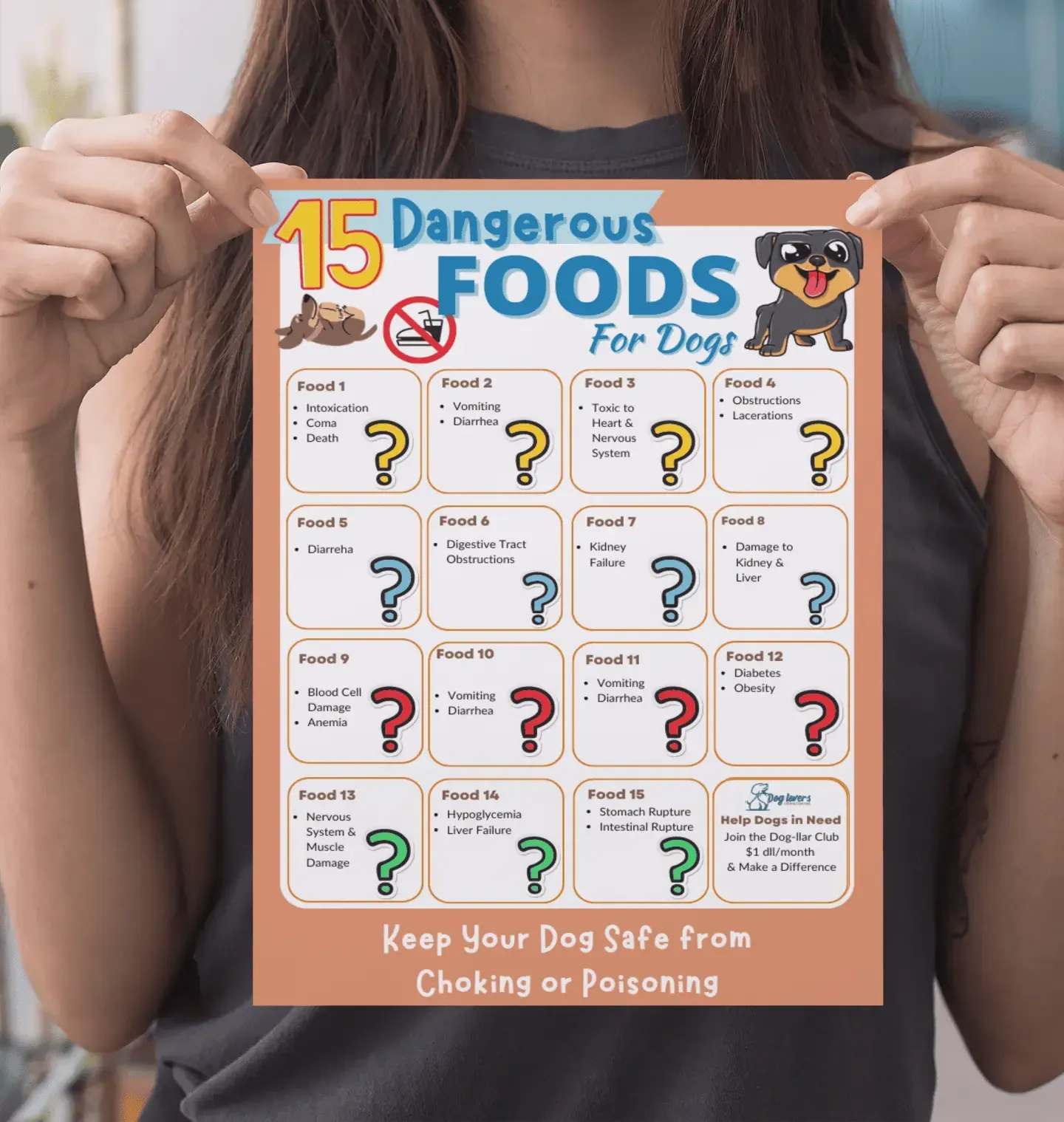
Full Disclosure: We use the funds to help dog shelters. (We will publish our finances in our website at the end of the year)
Did You Know There Are 3 Big Mistakes People Make When Trying to Choose The Best Dog Vitamins?
What Type of Vitamins Are Best For Your Dog?
Make The Quiz & Find Out Now!
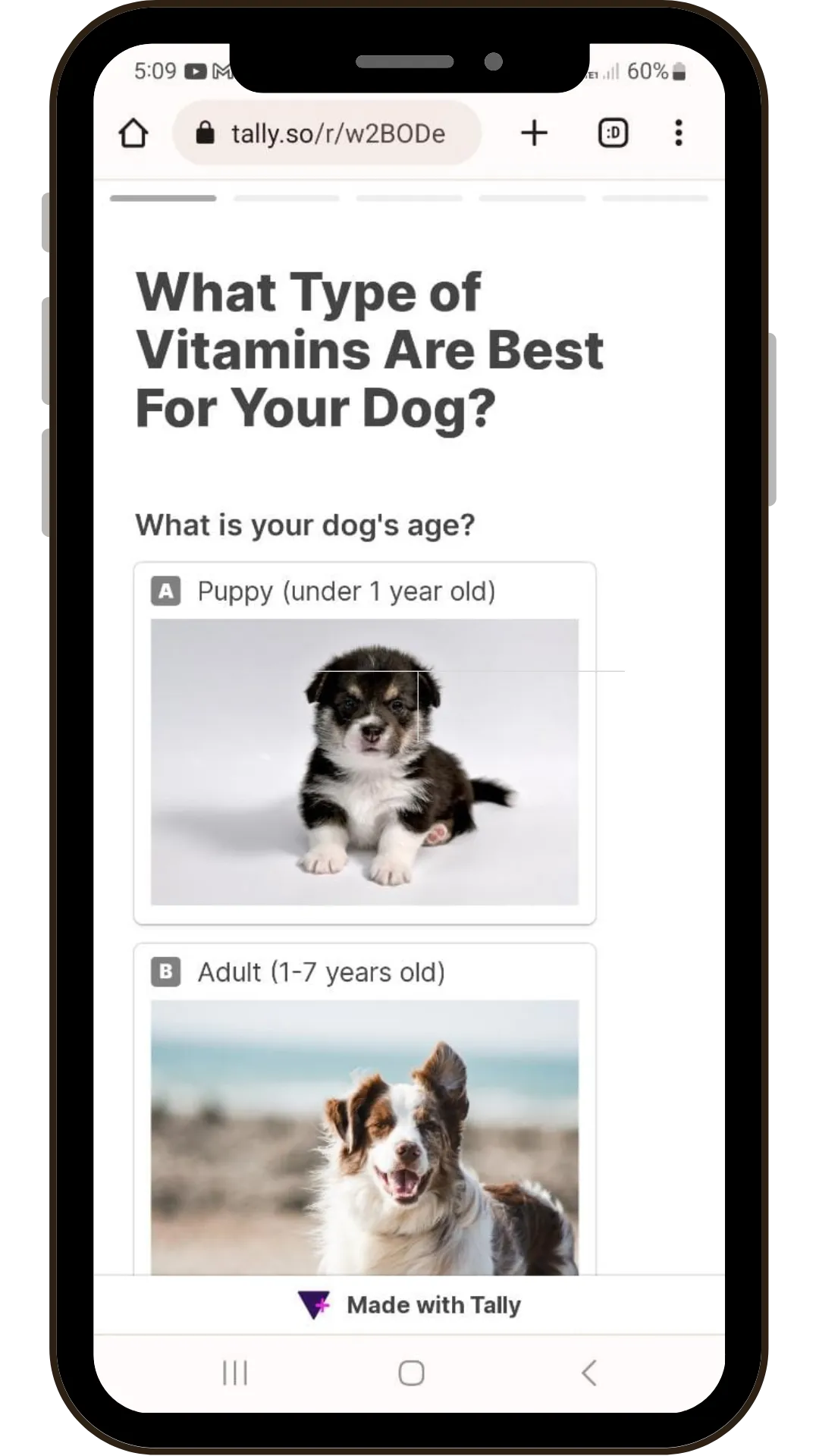
Can Dogs Eat Cucumbers?
Yes, dogs can eat cucumbers! Cucumbers are a good source of fiber and vitamins B and C. They're also low in calories, making them a healthy treat for your pup. Just be sure to remove the seeds before giving them to your dog, as they can be choking hazards.
Can Dogs Eat Popcorn?
No, popcorn is not safe for dogs to eat. Popcorn contains a chemical called hullin which can be toxic to dogs. Even a small amount of popcorn can make your dog very sick, so it's best to avoid it altogether. If you think your dog has eaten popcorn, please contact your veterinarian immediately.
Can Dogs Eat Peanut Butter?
Yes, dogs can eat peanut butter! Peanut butter is a good source of protein and healthy fats. It's also low in calories, making it a healthy treat for your pup. Just be sure to choose a peanut butter that doesn't contain xylitol, as it's toxic to dogs.
Can Dogs Eat Mango?
Yes, dogs can eat mango! Mango is a good source of vitamins A and C. It's also low in calories, making it a healthy treat for your pup. Just be sure to remove the pit before giving it to your dog, as it can be a choking hazard.
Can Dogs Eat Avocado?
No, avocado is not safe for dogs to eat. Avocado contains a chemical called persin which can be toxic to dogs. Even a small amount of avocado can make your dog very sick, so it's best to avoid it altogether. If you think your dog has eaten avocado, please contact your veterinarian immediately.
Can Dogs Eat Eggs?
Yes, dogs can eat eggs! Eggs are a good source of protein and healthy fats. They're also low in calories, making them a healthy treat for your pup. Just be sure to cook them thoroughly before giving them to your dog, as raw eggs can contain salmonella.
Can Dogs Eat Corn?
Yes, dogs can eat corn! Corn is a good source of fiber and vitamins B and C. It's also low in calories, making it a healthy treat for your pup. Just be sure to remove the kernels before giving them to your dog, as they can be choking hazards.
Can Dogs Eat Peanuts?
Yes, dogs can eat peanuts! Peanuts are a good source of protein and healthy fats. They're also low in calories, making them a healthy treat for your pup. Just be sure to choose a peanut butter that doesn't contain xylitol, as it's toxic to dogs.
Can Dogs Eat Almonds?
No, almonds are not safe for dogs to eat. Almonds contain a chemical called cyanide which can be toxic to dogs. Even a small amount of almonds can make your dog very sick, so it's best to avoid them altogether. If you think your dog has eaten almonds, please contact your veterinarian immediately.
Can Dogs Eat Celery?
Yes, dogs can eat celery! Celery is a good source of fiber and vitamins A and C. It's also low in calories, making it a healthy treat for your pup. Just be sure to remove the strings before giving it to your dog, as they can be choking hazards.
Can Dogs Eat Potatoes?
No, potatoes are not safe for dogs to eat. Potatoes contain a chemical called solanine which can be toxic to dogs. Even a small amount of potatoes can make your dog very sick, so it's best to avoid them altogether. If you think your dog has eaten potatoes, please contact your veterinarian immediately.
Can Dogs Eat Peaches?
Yes, dogs can eat peaches! Peaches are a good source of fiber and vitamins A and C. They're also low in calories, making them a healthy treat for your pup. Just be sure to remove the pit before giving it to your dog, as it can be a choking hazard.
Here Are a Few Tips for When You're Walking Your Dog. ----CHANGE THis Block (unpublished yet)
Can Dogs Eat Cantaloupe?
Yes, dogs can eat cantaloupe! Cantaloupe is a good source of fiber and vitamins A and C. It's also low in calories, making it a healthy treat for your pup. Just be sure to remove the seeds before giving it to your dog, as they can be choking hazards.
Can Dogs Eat Mushrooms?
No, mushrooms are not safe for dogs to eat. Mushrooms contain a chemical called ibotenic acid which can be toxic to dogs. Even a small amount of mushrooms can make your dog very sick, so it's best to avoid them altogether. If you think your dog has eaten mushrooms, please contact your veterinarian immediately.
Can Dogs Eat Pistachios?
No, pistachios are not safe for dogs to eat. Pistachios contain a chemical called aflatoxin which can be toxic to dogs. Even a small amount of pistachios can make your dog very sick, so it's best to avoid them altogether. If you think your dog has eaten pistachios, please contact your veterinarian immediately.
Can Dogs Eat Raspberries?
Yes, dogs can eat raspberries! Raspberries are a good source of fiber and vitamins C and K. They're also low in calories, making them a healthy treat for your pup. Just be sure to remove the seeds before giving them to your dog, as they can be choking hazards.
Can Dogs Eat Pickles?
No, pickles are not safe for dogs to eat. Pickles contain a chemical called sodium which can be toxic to dogs. Even a small amount of pickles can make your dog very sick, so it's best to avoid them altogether. If you think your dog has eaten pickles, please contact your veterinarian immediately.
Can Dogs Eat Pears?
Yes, dogs can eat pears! Pears are a good source of fiber and vitamins C and K. They're also low in calories, making them a healthy treat for your pup. Just be sure to remove the seeds before giving them to your dog, as they can be choking hazards.
Can Dogs Eat Kiwi?
Yes, dogs can eat kiwi! Kiwi is a good source of fiber and vitamins C and E. It's also low in calories, making it a healthy treat for your pup. Just be sure to remove the seeds before giving it to your dog, as they can be choking hazards.
Can Dogs Eat Onions?
No, onions are not safe for dogs to eat. Onions contain a chemical called thiosulphate which can be toxic to dogs. Even a small amount of onions can make your dog very sick, so it's best to avoid them altogether. If you think your dog has eaten onions, please contact your veterinarian immediately.
Can Dogs Eat Cherries?
No, cherries are not safe for dogs to eat. Cherries contain a chemical called cyanide which can be toxic to dogs. Even a small amount of cherries can make your dog very sick, so it's best to avoid them altogether. If you think your dog has eaten cherries, please contact your veterinarian immediately.
Can Dogs Eat Cashews?
No, cashews are not safe for dogs to eat. Cashews contain a chemical called urushiol which can be toxic to dogs. Even a small amount of cashews can make your dog very sick, so it's best to avoid them altogether. If you think your dog has eaten cashews, please contact your veterinarian immediately.
Can Dogs Eat Asparagus?
Yes, dogs can eat asparagus! Asparagus is a good source of fiber and vitamins A, C, and K. It's also low in calories, making it a healthy treat for your pup. Just be sure to remove the seeds before giving them to your dog, as they can be choking hazards.
Can Dogs Eat Bread?
Yes, dogs can eat bread! Bread is a good source of carbohydrates and protein. It's also low in calories, making it a healthy treat for your pup. Just be sure to remove the crust before giving it to your dog, as it can be hard for them to digest.
Can Dogs Eat Blackberries?
Yes, dogs can eat blackberries! Blackberries are a good source of fiber and vitamins C and K. They're also low in calories, making them a healthy treat for your pup. Just be sure to remove the seeds before giving them to your dog, as they can be choking hazards.
Can Dogs Eat Cinnamon?
Cinnamon is safe for dogs to eat in small quantities. Cinnamon is a good source of antioxidants and has anti-inflammatory properties. However, cinnamon can be toxic to dogs in large amounts. If you think your dog has eaten too much cinnamon, please contact your veterinarian immediately.
Can Dogs Eat Tuna?
Yes, dogs can eat tuna! Tuna is a good source of protein and omega-3 fatty acids. It's also low in calories, making it a healthy treat for your pup. Just be sure to remove the bones before giving it to your dog, as they can be choking hazards.
Can Dogs Eat Salmon?
Yes, dogs can eat salmon! Salmon is a good source of protein and omega-3 fatty acids. It's also low in calories, making it a healthy treat for your pup. Just be sure to remove the bones before giving it to your dog, as they can be choking hazards.
Can Dogs Eat Peas?
Yes, dogs can eat peas! Peas are a good source of fiber and vitamins A, C, and K. They're also low in calories, making them a healthy treat for your pup. Just be sure to remove the seeds before giving them to your dog, as they can be choking hazards.
Can Dogs Eat Green Beans?
Yes, dogs can eat green beans! Green beans are a good source of fiber and vitamins A, C, and K. They're also low in calories, making them a healthy treat for your pup. Just be sure to remove the seeds before giving them to your dog, as they can be choking hazards.
Can Dogs Eat Turkey?
Yes, dogs can eat turkey! Turkey is a good source of protein and B vitamins. It's also low in calories, making it a healthy treat for your pup. Just be sure to remove the skin and bones before giving it to your dog, as they can be choking hazards.
Can Dogs Eat Chicken?
Yes, dogs can eat chicken! Chicken is a good source of protein and B vitamins. It's also low in calories, making it a healthy treat for your pup. Just be sure to remove the skin and bones before giving it to your dog, as they can be choking hazards.
Can Dogs Eat Ham?
Yes, dogs can eat ham! Ham is a good source of protein and B vitamins. It's also low in calories, making it a healthy treat for your pup. Just be sure to remove the skin and bones before giving it to your dog, as they can be choking hazards.
Can Dogs Eat Honey?
Honey is safe for dogs to eat in small quantities. Honey is a good source of antioxidants and has antibacterial properties. However, honey can be toxic to dogs in large amounts. If you think your dog has eaten too much honey, please contact your veterinarian immediately.
Can Dogs Eat Ice Cream?
Ice cream is safe for dogs to eat in small quantities. Ice cream is a good source of calcium and protein. However, ice cream can be toxic to dogs in large amounts. If you think your dog has eaten too much ice cream, please contact your veterinarian immediately.
Can Dogs Eat Cauliflower?
Yes, dogs can eat cauliflower! Cauliflower is a good source of fiber and vitamins C and K. They're also low in calories, making them a healthy treat for your pup. Just be sure to remove the seeds before giving them to your dog, as they can be choking hazards.
Can Dogs Eat Garlic?
Garlic is safe for dogs to eat in small quantities. Garlic is a good source of antioxidants and has antibacterial properties. However, garlic can be toxic to dogs in large amounts. If you think your dog has eaten too much garlic, please contact your veterinarian immediately.
Can Dogs Eat Sweet Potatoes?
Yes, dogs can eat sweet potatoes! Sweet potatoes are a good source of fiber and vitamins A, C, and B6. They're also low in calories, making them a healthy treat for your pup. Just be sure to remove the seeds before giving them to your dog, as they can be choking hazards.
Can Dogs Eat Spinach?
Yes, dogs can eat spinach! Spinach is a good source of fiber and vitamins A, C, and K. They're also low in calories, making them a healthy treat for your pup. Just be sure to remove the seeds before giving them to your dog, as they can be choking hazards.
Can Dogs Eat Lettuce?
Yes, dogs can eat lettuce! Lettuce is a good source of fiber and vitamins A, C, and K. They're also low in calories, making them a healthy treat for your pup. Just be sure to remove the seeds before giving them to your dog, as they can be choking hazards.
Can Dogs Eat Pumpkin?
Yes, dogs can eat pumpkin! Pumpkin is a good source of fiber and vitamins A, C, and E. They're also low in calories, making them a healthy treat for your pup. Just be sure to remove the seeds before giving them to your dog, as they can be choking hazards.
Can Dogs Eat Raw Chicken?
Yes, dogs can eat raw chicken! Raw chicken is a good source of protein and B vitamins. However, raw chicken can be contaminated with bacteria that can make your dog sick. If you choose to feed your dog raw chicken, be sure to purchase it from a reputable source and cook it thoroughly before feeding it to your pup.
Can Dogs Eat Raw Eggs?
Yes, dogs can eat raw eggs! Raw eggs are a good source of protein and B vitamins. However, raw eggs can be contaminated with bacteria that can make your dog sick. If you choose to feed your dog raw eggs, be sure to purchase them from a reputable source and cook them thoroughly before feeding them to your pup.
Can Dogs Eat Coconut?
Yes, dogs can eat coconut! Coconut is a good source of fiber and vitamins C, E, and B. However, coconut can be toxic to dogs in large amounts. If you think your dog has eaten too much coconut, please contact your veterinarian immediately.
Can Dogs Eat Nuts?
Nuts are safe for dogs to eat in small quantities. Nuts are a good source of protein and healthy fats. However, nuts can be toxic to dogs in large amounts. If you think your dog has eaten too many nuts, please contact your veterinarian immediately.
Can Dogs Eat Beans?
Yes, dogs can eat beans! Beans are a good source of fiber and protein. However, beans can be toxic to dogs in large amounts. If you think your dog has eaten too many beans, please contact your veterinarian immediately.
Can Dogs Eat Oatmeal?
Yes, dogs can eat oatmeal! Oatmeal is a good source of fiber and vitamins B1, B2, and B6. However, oatmeal can be toxic to dogs in large amounts. If you think your dog has eaten too much oatmeal, please contact your veterinarian immediately.
Can Dogs Bell Peppers?
Yes, dogs can eat bell peppers! Bell peppers are a good source of fiber and vitamins C and A. However, bell peppers can be toxic to dogs in large amounts. If you think your dog has eaten too many bell peppers, please contact your veterinarian immediately.
Can Dogs Eat Pork?
Yes, dogs can eat pork! Pork is a good source of protein and B vitamins. However, pork can be contaminated with bacteria that can make your dog sick. If you choose to feed your dog pork, be sure to cook it thoroughly before feeding it to your pup.
Can Dogs Eat Marshmallows?
No, dogs should not eat marshmallows! Marshmallows are high in sugar and can cause gastrointestinal upset in dogs. If you think your dog has eaten a marshmallow, please contact your veterinarian immediately.
Can Dogs Eat Fish?
Yes, dogs can eat fish! Fish is a good source of protein and omega-3 fatty acids. However, some types of fish can be contaminated with mercury or other toxins that can be harmful to your dog. If you choose to feed your dog fish, be sure to purchase it from a reputable source and cook it thoroughly before feeding it to your pup.
Can Dogs Eat Walnuts?
No, dogs should not eat walnuts! Walnuts are a good source of protein and healthy fats. However, walnuts can be toxic to dogs in large amounts. If you think your dog has eaten too many walnuts, please contact your veterinarian immediately.
Can Dogs Eat Cranberries?
Yes, dogs can eat cranberries! Cranberries are a good source of fiber and vitamins C and E. However, cranberries can be toxic to dogs in large amounts. If you think your dog has eaten too many cranberries, please contact your veterinarian immediately.
Can Dogs Eat Zucchini?
Yes, dogs can eat zucchini! Zucchini is a good source of fiber and vitamins A and C. However, zucchini can be toxic to dogs in large amounts. If you think your dog has eaten too much zucchini, please contact your veterinarian immediately.
Can Dogs Eat Raisins?
No, dogs should not eat raisins! Raisins are a good source of fiber and vitamins C and B. However, raisins can be toxic to dogs in large amounts. If you think your dog has eaten too many raisins, please contact your veterinarian immediately.
Can Dogs Eat Raw Meat?
No, dogs should not eat raw meat! Raw meat can be contaminated with bacteria that can make your dog sick. If you choose to feed your dog raw meat, be sure to purchase it from a reputable source and cook it thoroughly before feeding it to your pup.
Can Dogs Eat Brussel Sprouts?
Yes, dogs can eat Brussels sprouts! Brussels sprouts are a good source of fiber and vitamins K and C. However, Brussels sprouts can be toxic to dogs in large amounts. If you think your dog has eaten too many Brussels sprouts, please contact your veterinarian immediately.
Can Dogs Eat Egg Shells?
No, dogs should not eat egg shells! Egg shells can be sharp and can cause gastrointestinal injury if ingested. If you think your dog has eaten an egg shell, please contact your veterinarian immediately.
Can Dogs Eat Bacon?
Yes, dogs can eat bacon! Bacon is a good source of protein and fat. However, bacon can be high in sodium and fat which can be harmful to your dog. If you choose to feed your dog bacon, be sure to cook it thoroughly before feeding it to your pup.
Can Dogs Eat Olives?
No, dogs should not eat olives! Olives can be toxic to dogs in large amounts. If you think your dog has eaten too many olives, please contact your veterinarian immediately.
Can Dogs Eat Cabbage?
Yes, dogs can eat cabbage! Cabbage is a good source of fiber and vitamins C and K. However, cabbage can be toxic to dogs in large amounts. If you think your dog has eaten too much cabbage, please contact your veterinarian immediately.
Can Dogs Eat Pomegranates?
Yes, dogs can eat pomegranates! Pomegranates are a good source of fiber and vitamins C and B. However, pomegranates can be toxic to dogs in large amounts. If you think your dog has eaten too many pomegranates, please contact your veterinarian immediately.
Can Dogs Eat Papaya?
Yes, dogs can eat papaya! Papaya is a good source of fiber and vitamins A and C. However, papaya can be toxic to dogs in large amounts. If you think your dog has eaten too much papaya, please contact your veterinarian immediately.
Can Dogs Cat Food?
Yes, dogs can eat cat food! However, cat food is not nutritionally complete for dogs and should only be fed to them in moderation.
Can Dogs Eat Cheese?
Yes, dogs can eat cheese! Cheese is a good source of protein and calcium. It's also low in calories, making it a healthy treat for your pup. Just be sure to choose a cheese that doesn't contain xylitol, as it's toxic to dogs.
Can Dogs Eat Frozen Yogurt?
Yes, dogs can eat frozen yogurt! Frozen yogurt is a good source of protein and calcium. It's also low in calories, making it a healthy treat for your pup. Just be sure to choose a frozen yogurt that doesn't contain xylitol, as it's toxic to dogs.
Can Dogs Eat Apples?
Yes, dogs can eat apples! Apples are a good source of fiber and vitamins A and C. They're also low in calories, making them a
Can Dogs Eat Yogurt?
Yes, dogs can safely eat yogurt. However, it's important to choose the right type of yogurt. Some yogurts contain high amounts of sugar or artificial sweeteners, which can be harmful to dogs. Instead, opt for plain, unsweetened yogurt. It's a good source of protein and calcium, and it can help to soothe an upset stomach.
Can Dogs Eat Rice?
Yes, rice is safe for dogs to eat. In fact, it may even help settle an upset stomach. Just be sure to cook the rice before giving it to your pup - uncooked rice can be hard on their digestive system. Also, avoid adding any salt, butter, or other seasoning to the rice. Plain, cooked rice is best.
Can Dogs Eat Apples?
Yes, dogs can safely eat apples. Apples are a good source of fiber and vitamins A and C. They also contain a sugar called fructose, so it's important to limit the amount your dog eats. Too much fructose can cause stomach upset in dogs. Give them just a few slices of apple at a time as a treat.
What Fruits Can Dogs Eat?
Dogs can eat a variety of fruits, including apples, bananas, blueberries, cantaloupe, and watermelon. However, it's important to give them only small amounts at a time since too much fruit can cause stomach upset. Also, avoid giving your dog fruits that contain pits or seeds, as these can be choking hazards.
What Vegetables Can Dogs Eat?
Dogs can eat a variety of vegetables, including carrots, celery, green beans, sweet potatoes, and pumpkin. However, it's important to give them only small amounts at a time since too much vegetable matter can cause digestive problems. Also, avoid giving your dog vegetables that contain pits or seeds, as these can be choking hazards.
Now that you know what foods are safe for your dog to eat, you can feel confident about giving them a little something extra at mealtime. Just be sure to start with small amounts and watch for any signs of stomach upset. And as always, consult with your veterinarian if you have any questions or concerns.
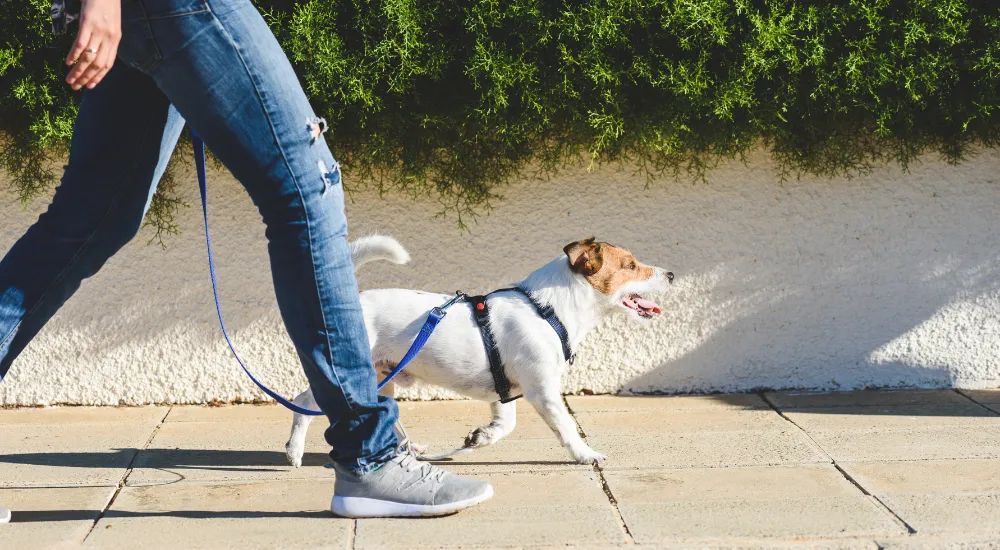
Conclusion
The bottom line is that there is no single answer to the question "how often should you walk your dog?" The frequency of walks will depend on different factors.
By taking all of these factors into account, you can figure out a walking schedule that works best for both you and your furry friend!
Before You Go ....
Grab Your Ultimate Veterinarian Checklist of the 15 Foods You Should Never Ever Give Your Dog to Keep Him Safe from Choking or Poisoning.
Simply click the button below and Get it in Your Inbox Now!

Full Disclosure: We use the funds to help dog shelters. (We will publish our finances in our website at the end of the year)
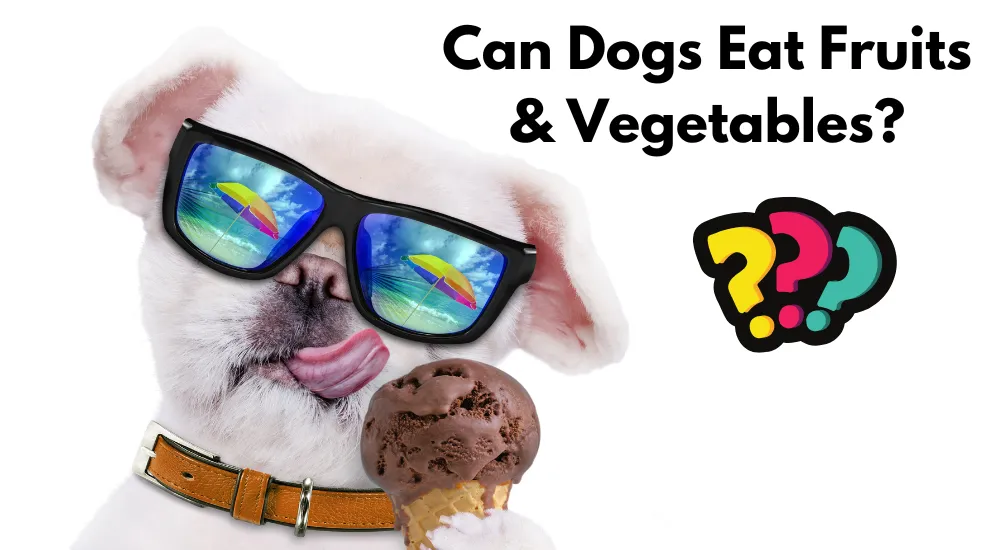
Now that you know what foods are safe for your dog to eat, you can feel confident about giving them a little something extra at mealtime. Just be sure to start with small amounts and watch for any signs of stomach upset. And as always, consult with your veterinarian if you have any questions or concerns.
....and remember ....
To help you with Your Most Common Dog Food Questions, we've put together a Free Report showing you a Checkist of 101 Fruits & Vegetables Dogs Can Eat.
We also send Tips and Highly Valuable Information for Dog Lovers like you.
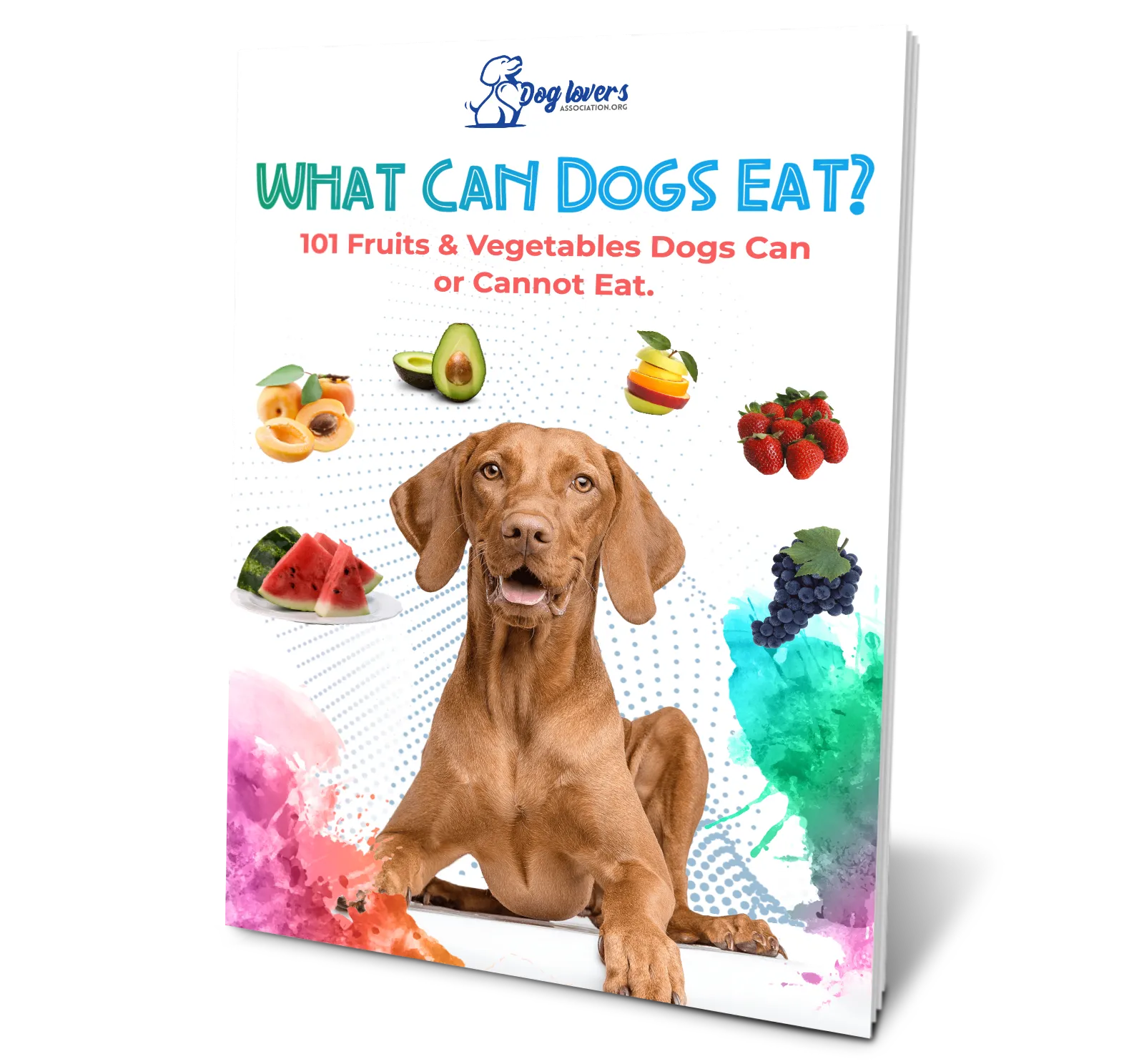
© Dog Lovers Association 2025 - All Rights Reserved
1300 Cornwall Road, Suite 201-204 Oakville ON L6J 7W5, Canada
Disclaimer: Not intended to be a substitute for professional veterinarian advice, diagnosis, or treatment. Always seek the advice of your veterinarian with any questions you may have regarding the medical condition of your pet. If you think your pet has a medical emergency, call or visit your veterinarian or your local veterinary emergency hospital immediately.We do not provide medical or legal advice. We are just a group of people who love dogs and try our best to get you the most accurate and useful information about the topics related to Responsible Dog Ownership. We are not veterinarians and we do not have any type of professional qualifications regarding dogs. We do our best to collect volunteers and financial aid to help dogs and dog shelters in need.
